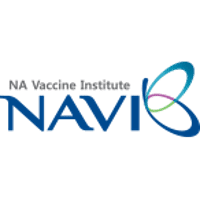AbstractSynthetic dsRNA analogs recognized by TLR3 are an attractive adjuvant candidate for fight against intracellular pathogens or tumors, because of their enhanced T cell-mediated and humoral immunities. Although poly(I:C) is a representative dsRNA with potent adjuvanticity, its clinical application has been severely limited due to heterogenicity, inconsistent activity, poor stability, and toxicity. In spite of numerous clinical trials, few products have been approved for human use. To overcome these limitations, we try to develop a novel defined form of TLR3 agonist. A single 275-kDa homogeneous molecule was selected as an alternative of poly IC and its derivatives and named NexaVant (NVT). The analytical analyses including reverse phase-HPLC analysis demonstrated that NVT is homologous without a lot-to-lot variation. NVT appears to be stable since its appearance, concentration, and molecular size were unaffected under 6 months of accelerated storage conditions. Moreover, preclinical evaluation of toxicity under good laboratory practices showed that NVT is a safe substance without signs of serious toxicity. NVT increases the expression of dsRNA sensors such as TLR3, MDA-5, and RIG-I. Together with a potent apoptotic cell death to several cancer cell lines, NVT substantially induced the phenotypic markers of DC maturation and activation including MHC-II, CD40, CD80, and CD86 together with IFN-alpha production. Several poly IC and its derivatives are used as a in situ anticancer agent in clinical trials. NexaVant was tested as an in-situ cancer therapy reagent in several animal models. When NVT is injected into tumors, it induces and recruits diverse immune cells with a potent anti-cancer effect. Combined with anit-PD-1 antibody, it shows the increase number of DC and T-cells, especially CD8 T cells and decrease that of Tregs. Using human PD-1 knock-in mouse model, NVT has shown the synergistic anti-cancer effect with anti-PD-1 antibody. Several animal efficacy data target to head and neck cancer, triple-negative breast cancer, and melanoma would be presented.Citation Format: Dongho Kim, Sungwhan Lee. A novel and defined TLR3 agonist based anticancer therpay [abstract]. In: Proceedings of the American Association for Cancer Research Annual Meeting 2023; Part 1 (Regular and Invited Abstracts); 2023 Apr 14-19; Orlando, FL. Philadelphia (PA): AACR; Cancer Res 2023;83(7_Suppl):Abstract nr 3288.







